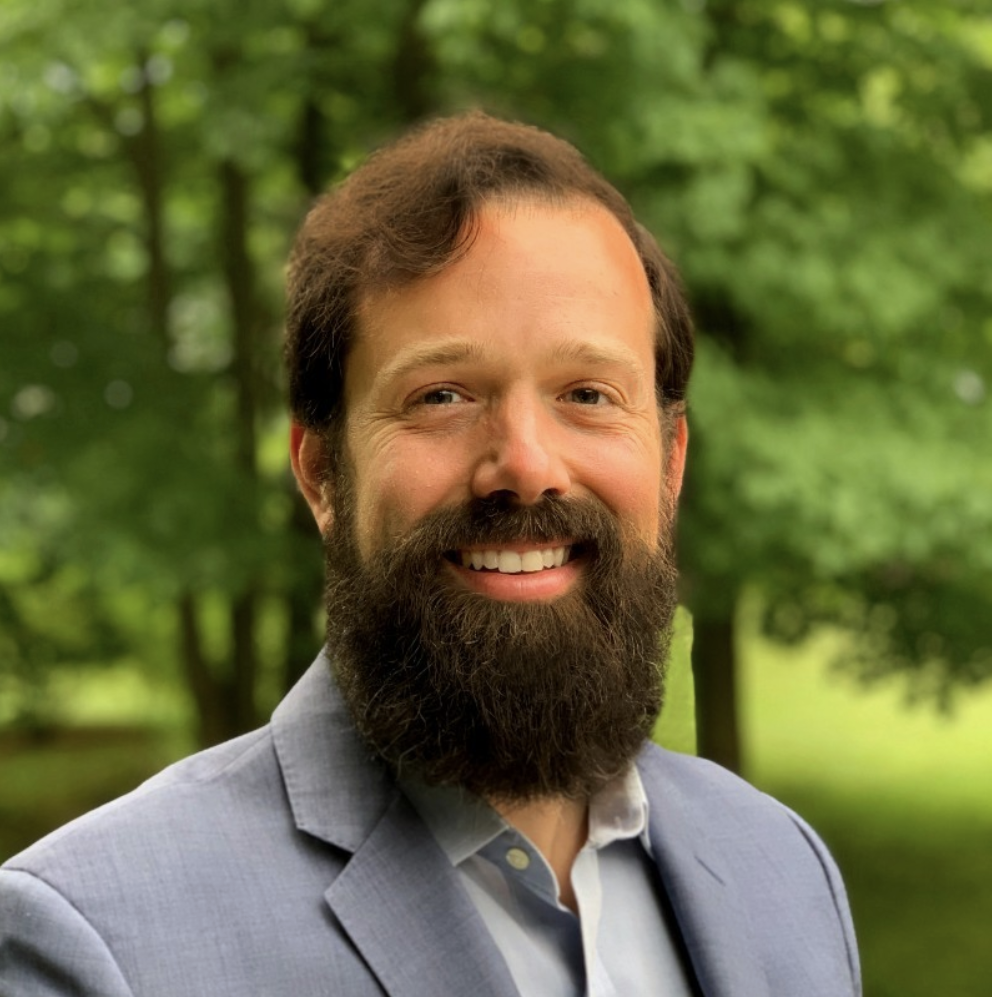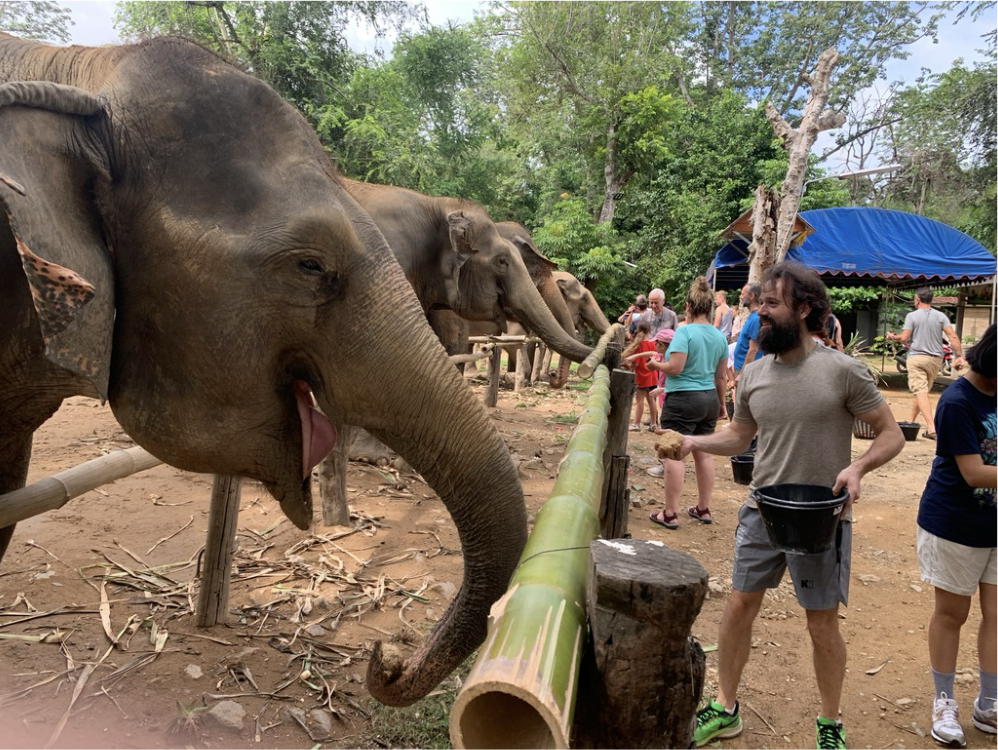Name: Jordan Forester
Class Year: 2008
Title: Entrepreneur (former Wall Street energy banker)
Organization Name: Climate Tech Crusaders
1. In one sentence, what does your job entail?
I meet and support ambitious climate tech entrepreneurs battling every day on the frontlines of the climate crisis.
2. What planned and unplanned events connected you to your industry and your first employer after Holy Cross? How did you learn/decide it was a good fit for you?
The path that led me from economics major to Wall Street banker to climate tech entrepreneur was one full of zigs and zags, a mix of planned and unplanned events, persistence, serendipity, pivots, and lucky breaks from the universe. I graduated from HC in 2008 without a job during the Great Financial Crisis. It wasn’t until March of 2010 that I received my first full time job offer to work for BofA as an analyst in the healthcare lending group. During my time on the Hill, I was interested in Wall Street finance, although I honestly didn’t know the difference between a stock or a bond. I had been turned down by every firm that gave me an interview, from Fidelity to Citigroup to Morgan Stanley to Brown Brothers and more. Although relatively painful at the time, those No’s were blessings in disguise that helped me build thicker skin and forced me to learn how to cold email, put myself out there, network, and build meaningful relationships from scratch during perhaps one of the toughest economic climates and brutal job markets in 100 years. What I viewed then as struggle (which in hindsight, after seeing real poverty in my recent journey to help entrepreneurs in Africa, LatAm, SE Asia and India last year) would eventually build my character, adaptability and ability to persist. It helped me during an eventual startup journey that involved navigating uncertainty and rejection.
I remember feeling caught in a ridiculously frustrating Catch 22: One weakness preventing me from getting hired, I was told, was lack of experience. Come again? The only business experience on my resume is serving hors d’oeuvres at weddings for my father’s catering company! I had a binder chock full of Wall Street interview guides and possible questions that were carefully curated by HC career center staff. How did my classmate who chose to study Greek Mythology instead of economics secure that offer with Lehman Brothers?
I imagined HC alumni and Boston Celtics basketball legend Bob Cousy himself throwing me an easy alley-oop pass and me continuously bricking it.
What was I missing?
It didn’t help that I was attempting to break into finance during the Great Financial Recession in 2008: the worst job market in 100 years. But even if it had been a bull market, I neither knew how to tell my story nor translate the incredible privilege of a Holy Cross education into a job offer. I wanted to work in finance and was proud to have graduated, but felt I had missed the boat: stuck at the starting line and scared I’d never catch up.
After graduation, I spent six months cold emailing companies from my childhood home in Wakefield. I applied for hundreds of jobs online without an inside connection. Crickets. Not a creature was stirring, not even a mouse. In the fall of 2008, I caught a lucky break, and found a three-month internship at a Boston-based investment bank called America’s Growth Capital. About half-way through the internship, Lehman Brothers filed for bankruptcy, and I was not hired full time. I did some back-office temp work for JPMorgan for nine months and then, again, was not hired. I made a list of every HC alumni working in finance, entered each into an excel spreadsheet (which I still use) and started writing from the heart, asking for help and advice.
My luck changed when I met HC alumni Ted Lynch, an MD in BofA’s Restaurant Group in Boston. One of our common bonds was that we were both HC alumni interested in finance. That first short first conversation changed my life’s trajectory. Eighteen months after graduation, thanks to Ted’s kindness and generosity, I was able to land my first real job as a credit analyst at BofA. I finally had realized the true power of the HC alumni network.
3. What were you involved in when you were on campus?
I participated in Big Brother Big Sister, played intramural basketball, and spent lots of time throwing the frisbee on Easy Street. I also spent lots of time in Dinand Library, Cool Beans, and Kimball. I suppose I could have done more networking, but am grateful for the incredible relationships I built and friendships I have to this day.
4. What was your major and how did it affect your career decisions?
I chose Economics because I thought it was the closest major to learn about business (other than accounting). I honestly wasn’t sure what I really wanted to do after HC, but was curious and drawn to business and Wall Street as a means of drinking from a knowledge firehose and learning from ambitious businesspeople. I had no idea how to read financial statements but had heard that the intensity of the work and hard skills I could learn (such as financial modeling or credit analysis) could provide a foundation and options that could lead to other opportunities down the road (eg MBA, working in private equity, working at another company, etc.).
Majoring in economics gave me a shot to break into finance. Some of the fundamentals of economic theory have helped me better understand how choices are made with the backdrop of resource scarcity, and what drives prices (whether oil & gas prices, or the price of a stock, or debt security that a hedge fund is analyzing). It also helped with ice breakers with other HC alumni in finance.
5. What are one or two skills that you developed at Holy Cross that you use in your work?
The most important skills I developed were 1) the ability to ask better questions to quickly learn something new / foreign and 2) connecting dots and finding the common denominators between seemingly unrelated disciplines.
I’ve worked for a decade in finance across various Wall Street firms, from JPMorgan to BofA to Webster Bank. In each situation I was forced to learn a new team and industry (eg Oil & Gas, Healthcare, Private Equity, Restaurants). When I moved into startup building with Courial to decarbonize mobility and help gig workers live better lives, I was lucky to receive support from the HC community of faculty and students who helped scale the company. I had to again learn new sectors and subjects from scratch (tech startups, entrepreneurship, venture capital, startups, and how to create a company from 0 to 1). I had to learn new languages all over again. The Holy Cross liberal arts framework was at the heart of my ability to pivot and learn new languages quickly under pressure, and in some cases unlearn what I had learned (to quote our little green friend Yoda).
I believe that the skill of looking for connections across different fields in a world that is changing faster than ever (thanks to advances in AI and machine learning, among other factors) is more valuable than ever. I was lucky at Holy Cross to learn a variety of subjects beyond economics, such as language (French), philosophy, fundamentals of music, computer science, global change biology, Russian Tales of Desire, and Bali Gamelan Music (my favorite) – which helped me broaden my perspective and over time bond with more people than I ever could have imagined. It was my ability to speak a little French that helped me navigate the Francophone speaking African countries, Ivory Coast and Senegal, last year. It was my course on Bali music which helped me engage in memorable conversations with entrepreneurs in Southeast Asia. They were impressed that I even had heard of the country, let alone played an instrument!
Building climate tech startups that are attempting to decarbonize every sector of the economy which means we’ll have to rethink what we previously thought was true and collaborate with people across different fields (chemistry, biology, AI, machine learning, policy, finance, energy, and academia, and more) to remix old recipes, build diverse teams. We’ll have to use a beginner’s mind and the Jesuit principles of giving for others to cook up solutions and technologies to save our planet.
6. What advice do you have for students on campus today?
Don’t be afraid to jump into new situations. Stay open minded, meet and learn from as many different people as you can, try to enjoy dancing with uncertainty, and follow your curiosities (not what your peers are doing or what’s popular), no matter how weird you think your interests might be. That is the path to unlocking your own unique superpowers. By learning and doing the things that make you feel most alive, you’ll be able to go deeper, engage in more lively conversations, and have more energy to find your own truth. It took me some time to learn that the HC alumni network is like an extended, life-long family that’s always there for you. Even though it’s so hard with so much on your plate, taking the time to network and go beyond your comfort zone is worth the investment. You don’t need to dive deep into the ocean to find buried treasure. You can find hidden gems in a conversation with anyone you meet. I’m constantly amazed by what I’m learning from both alumni and students (and sometimes random people on the street) who always have a story to tell and or a gem to share (if you know how to ask the right questions to unlock the door).
One of my favorite quotes is from Joseph Campbell: As you go the way of life, you will see a great chasm. Jump. It is not as wide as you think. My advice is to just jump!



